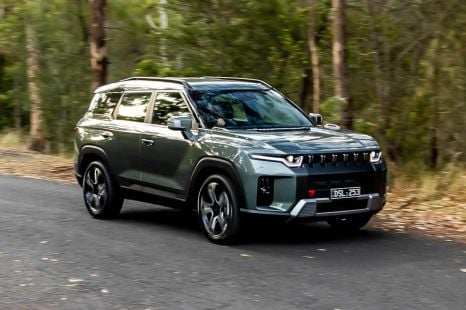

Matt Campbell
2026 KGM Torres Hybrid review
2 Hours Ago

Journalist
Skoda is hoping the new, bigger Kodiaq is sized just right for families around the world.
It’s due in Australia in the fourth quarter of 2024.
Measuring 4758mm long, 1864mm wide, 1659mm tall, and riding on a 2791mm wheelbase, the new Kodiaq is 61mm longer, 18mm narrower, and 17mm taller than the original. The two generations share the same wheelbase.
Stylistically, the second-generation Kodiaq isn’t a radical departure from the first. The new car has smoother surfacing, fewer straight lines, and a new D-pillar panel that can be had with a metallic or black finish.
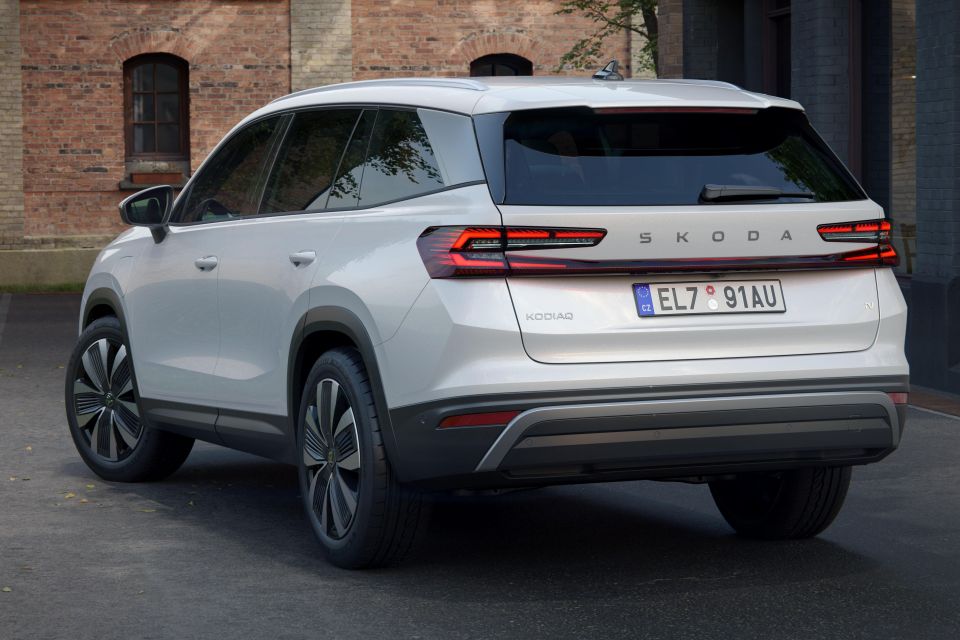
Wheel sizes range from 17 to 20 inches, with a variety of different designs and finishes. The coefficient of drag has been reduced to 0.282, which Skoda credits to the car’s more slippery bumper design and active cooling shutters.
As before the Kodiaq is offered as either a five- or seven-seater. With most of the increased length occurring behind the rear axle, the third row and boot are more capacious. Skoda says the increase ranges between 30 and 75 litres depending on the variant and the position of seats.
In Europe the Kodiaq’s petrol engine range contains a 110kW 48V mild hybrid 1.5-litre turbocharged four-cylinder, and a 150kW 2.0-litre turbo four-cylinder.
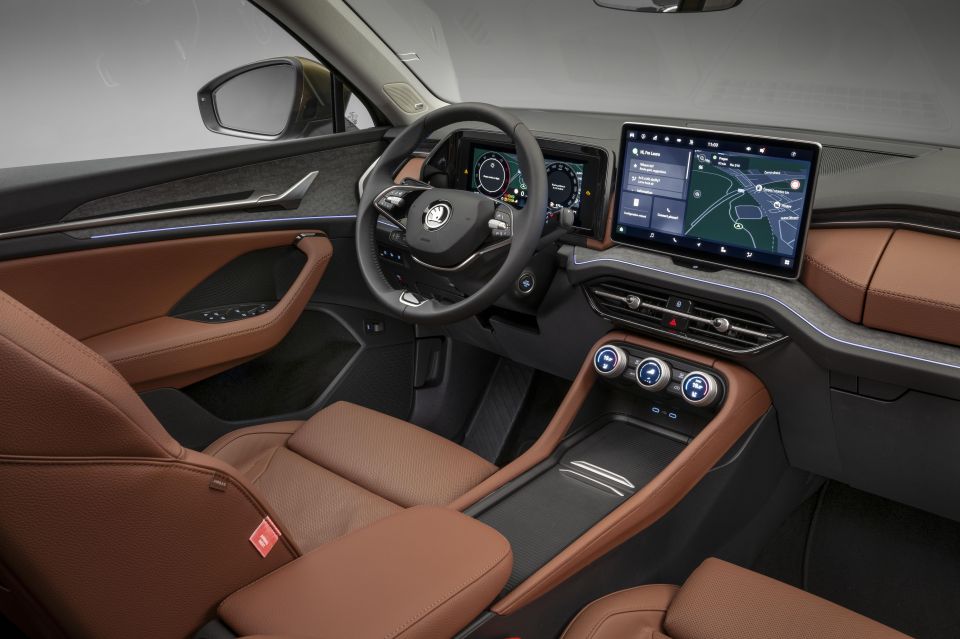
There are two compression ignition options both with a 2.0-litre four-cylinder turbo-diesel: one rated at 110kW, and the other at 142kW.
Both the 150kW 2.0-litre petrol and 142kW 2.0-litre turbo-diesel come with all-wheel drive as standard. The petrol and diesel engines are hooked up to a standard automated dual-clutch transmission.
The headline drivetrain, though, is the Kodiaq’s first plug-in hybrid option, which has already been ruled out for Australia. Boasting a total of 150kW, the system includes a 25.7kWh battery, and a 1.5-litre turbocharged petrol engine driving the front wheels via a six-speed dual-clutch transmission with a built-in electric motor.
Skoda claims the Kodiaq iV plug-in hybrid has a pure electric driving range of at least 100km using the WLTP standard. The car supports AC charging up to 11kW, and DC fast charging up 50kW.
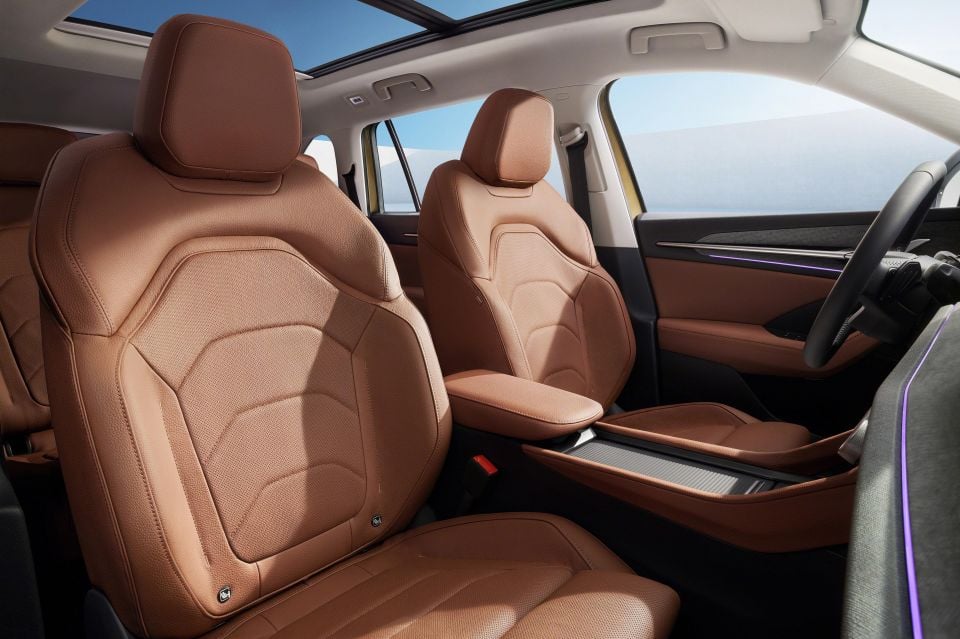
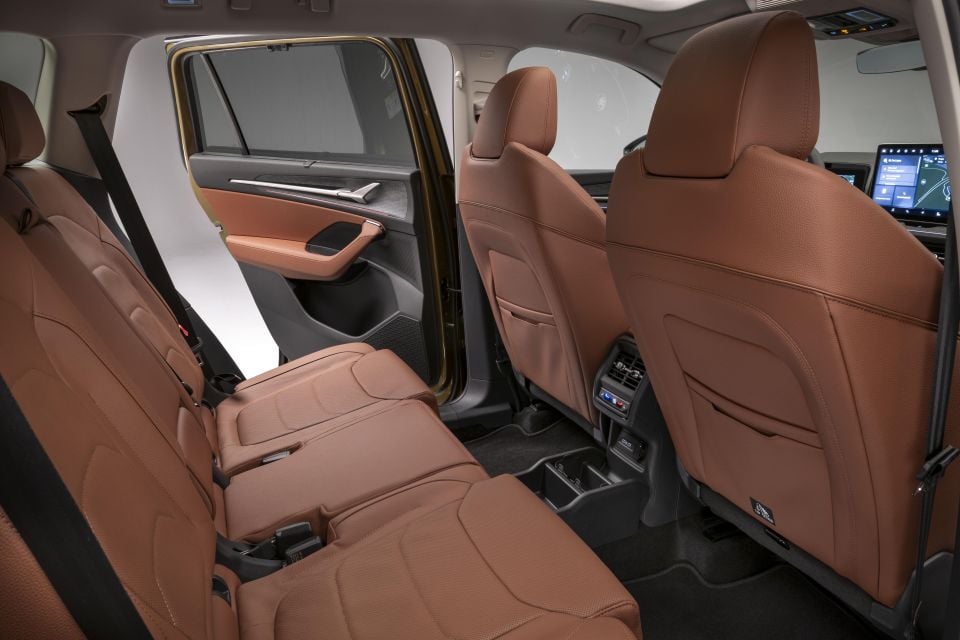
The binnacle in front of the driver houses a standard 10.0-inch instrumentation display, which is complemented by a free-standing 10.0-inch touchscreen in the middle of the dashboard.
Also standard is a nine-speaker sound system, four 45W USB-C ports — two in the front, and two at the back — and a 15W USB-C port in the back of the mirror. The transmission selector has been shifted from the centre tunnel to a wand behind the steering wheel, freeing up space for a larger 2.1L lidded storage area.
Higher-specced trim levels have a head-up display, a larger 13.0-inch touchscreen, and a 14-speaker Canton sound system.
The seat fabric and carpets feature recycled polyester, while the umbrella and ice scraper are made from “sustainable materials”.
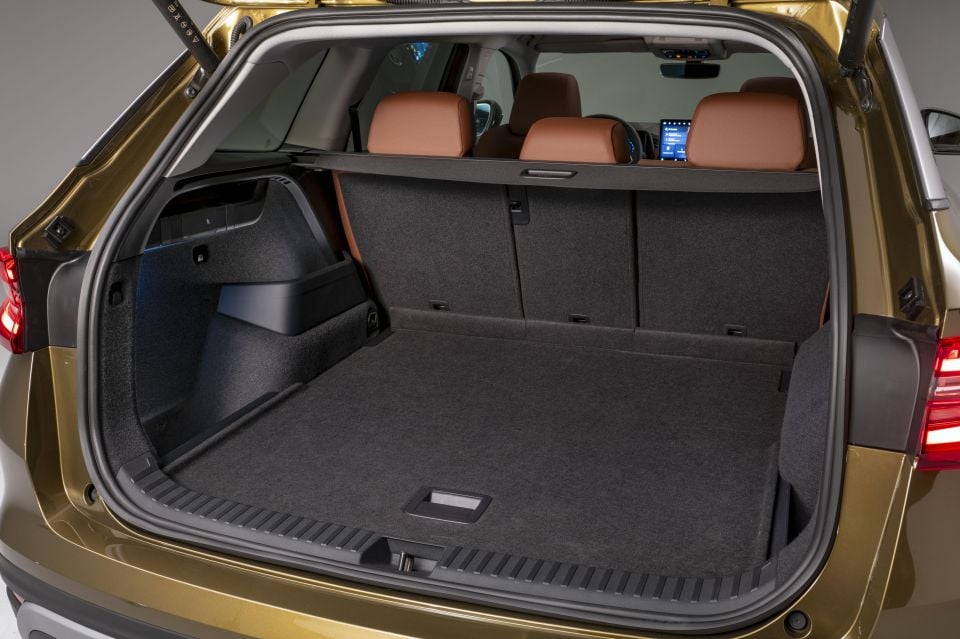
Due to the timing of the new Kodiaq in the Volkswagen Group’s model cadence, the second-generation crossover neatly sidesteps some of the automaker’s recent user interface faux pas.
Despite the presence of a large touchscreen, the new Kodiaq has a bank of three rotary dials with built in displays — dubbed Smart Dials — that can be configured to adjust various elements of the climate control and entertainment systems. There are also traditional push buttons and scroll wheels on the steering wheel spokes.
Options on the new Kodiaq include a 15W wireless charging area that can house two smartphones, ergonomic front seats with pneumatic massage, and a matrix LED headlight system with 36 lighting segments.
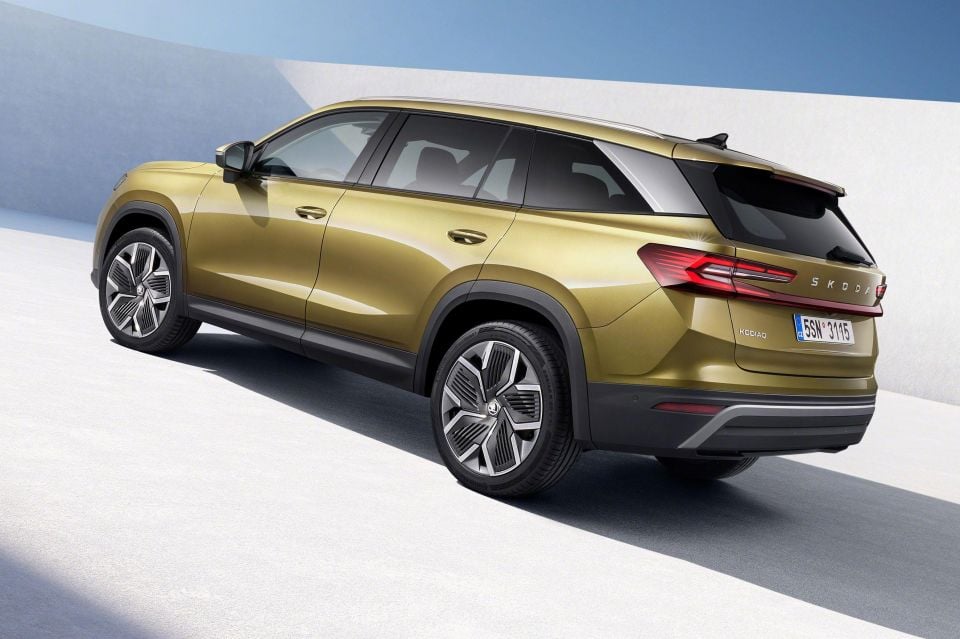
On the safety front, new features include warnings if traffic is detected when opening a door; Collision Avoidance Assist, which enhances steering inputs when trying to avoid an accident; and warnings and autonomous braking when cars, pedestrians or cyclists are detected when turning into traffic or crossroads.
There’s also an autonomous parking assistant that can do head-in and parallel parking while the driver is either inside or outside the vehicle.
The new Kodiaq will be produced in Kvasiny, Czechia.
Since the original Kodiaq was launched in 2016, 841,900 units have been sold worldwide. Despite being named after the Kodiak brown bear, which shares its name with the former capital of Russian Alaska, Skoda’s flagship crossover has never been sold in the US.
MORE: Everything Skoda Kodiaq
Where expert car reviews meet expert car buying – CarExpert gives you trusted advice, personalised service and real savings on your next new car.
Derek Fung would love to tell you about his multiple degrees, but he's too busy writing up some news right now. In his spare time Derek loves chasing automotive rabbits down the hole. Based in New York, New York, Derek loves to travel and is very much a window not an aisle person.


Matt Campbell
2 Hours Ago
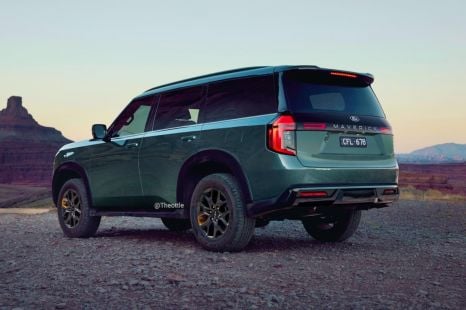

Ben Zachariah
18 Hours Ago
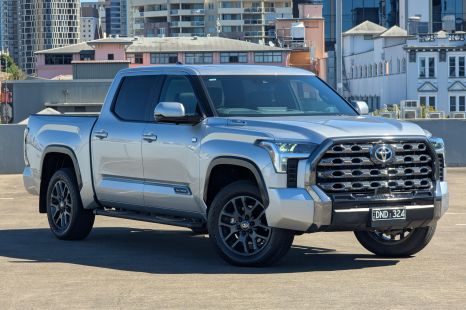

Damion Smy
19 Hours Ago
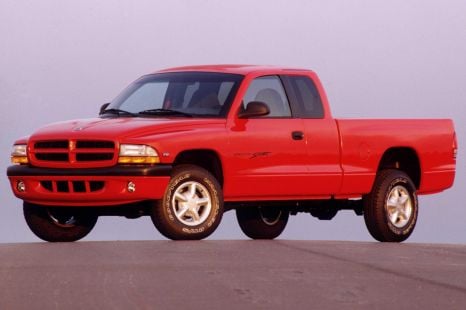

Derek Fung
20 Hours Ago


Ben Zachariah
20 Hours Ago
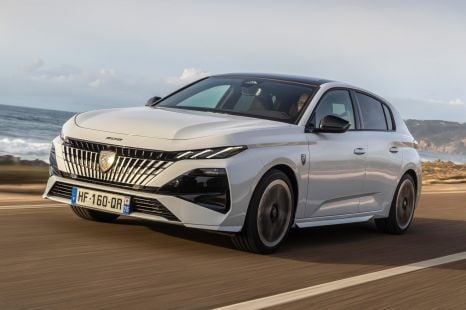

Matt Robinson
1 Day Ago